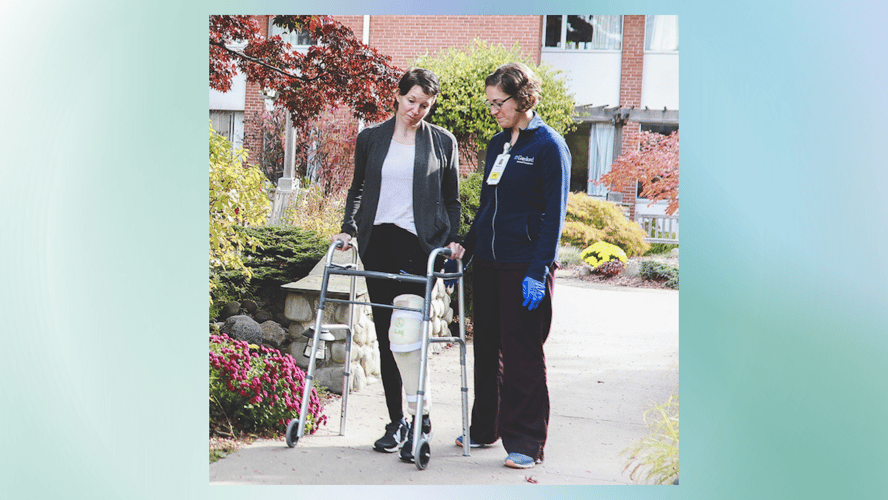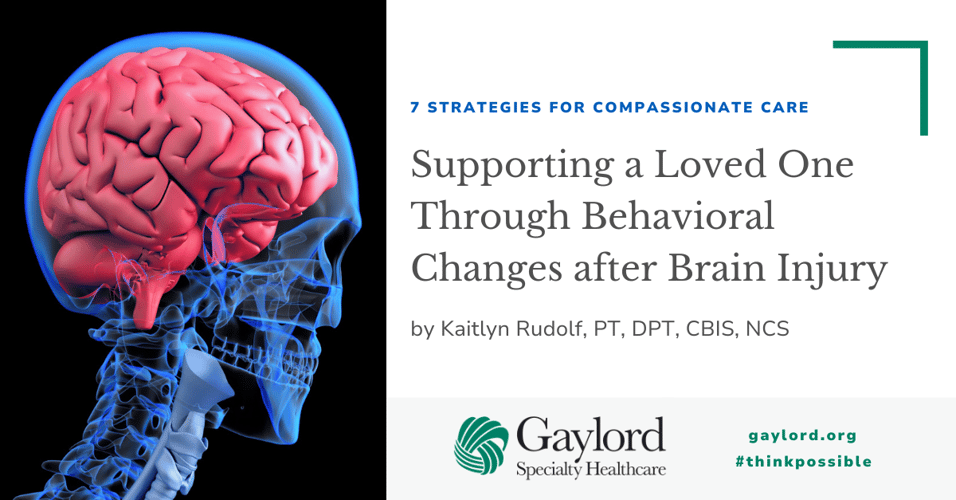By Dorene Scolnic, LCSW
Caring for a loved one after a stroke can be emotionally complex. While physical rehabilitation is often the primary focus, addressing the emotional and psychological aftermath is equally important. Many stroke survivors experience mood changes, depression, anxiety, and shifts in self-esteem, all of which impact both the individual and their caregiver. Here’s a guide to understanding these changes and how caregivers can offer meaningful support.
Common emotional effects of stroke:
Emotional and mental health struggles are common in stroke survivors, with about half experiencing depression or mood changes. However, caregivers are also susceptible to mood shifts, stress, and anxiety as they navigate their loved one’s journey to recovery. Some common emotional effects include:
- Depression
- Anxiety
- Mood swings
- Apathy
- Low self-esteem
Depression
Depression symptoms in stroke survivors can mirror or amplify some physical effects of the stroke, making it challenging to distinguish between the two. Some overlapping symptoms include low energy, sleep disturbances, and emotional regulation difficulties.
Signs of depression can include:
- Persistent sadness or anxiety
- Loss of interest in previously enjoyed activities
- Fatigue or low energy
- Difficulty concentrating, remembering, or making decisions
- Changes in sleep or appetite patterns
How caregivers can help:
- Offer support: Be a patient listener and encourage open conversations about feelings.
- Avoid assumptions: Rather than saying, “I know how you feel,” acknowledge their emotions and offer hope.
- Encourage activity: Help them find small activities to engage in and celebrate any progress, however minor.
Increased anxiety
Anxiety after a stroke can be fueled by new challenges, uncertainty about the future, or even trauma related to the stroke itself.
Signs of anxiety can include:
- Persistent worry or nervousness
- Physical tension, rapid heart rate, sweating, or shortness of breath
- Feelings of panic or dread
How caregivers can help:
- Collaborative problem-solving: Work together to identify specific worries and address them constructively.
- Encourage journaling: Writing down racing thoughts can help the survivor slow them down.
- Use redirection: When worry spirals, gently redirect their attention to a different task or topic
Mood swings (emotional lability)
Mood swings in stroke survivors can be frequent and intense, sometimes shifting abruptly in a way that feels out of place or out of context with the situation.
Signs of mood swings can include:
- Unexpected shifts from laughter to tears
- Emotional responses that don’t match the context
How caregivers can help:
- Stay calm and supportive: Offer reassurance and avoid judging sudden mood changes.
- Redirect attention: Sometimes a simple distraction or shift in activity can help reset emotions.
Apathy
Apathy can affect a stroke survivor’s ability to engage, plan, or initiate tasks, making them appear uninterested or emotionally “flat”.
Signs of apathy:
- Lack of motivation or difficulty starting activities
- Emotional neutrality, without significant highs or lows
How caregivers can help:
- Encourage small steps: Gentle nudges to begin a task or a structured routine can help.
- Work together: Partner with them on tasks to boost motivation and provide companionship.
Changes in self-esteem
Self-esteem can take a hit post-stroke, especially as survivors may struggle with feelings of inadequacy or dependency.
Signs of low self-esteem:
- Negative self-talk or feelings of worthlessness
- Social withdrawal or lack of interest in appearance
How caregivers can help:
- Focus on strengths: Encourage positive thinking by highlighting strengths and recent achievements.
- Promote connection: Help them stay connected with friends and family, which can be uplifting and reinforce their self-worth.
- Set achievable goals: Even small, attainable goals can be powerful for rebuilding confidence and self-esteem.
Supporting a stroke survivor emotionally is as vital as helping with physical recovery. While the journey may be challenging, understanding the emotional landscape and offering compassionate care can significantly improve quality of life for both survivors and caregivers. Remember that patience, empathy, and small steps toward emotional well-being can make a world of difference.
This content is for educational purposes only and is meant to provide general information. It is not a substitute for professional medical advice, diagnosis, or treatment. Always consult your healthcare provider with any questions or concerns about your health. In case of a medical emergency, contact your doctor or call 911 right away.


